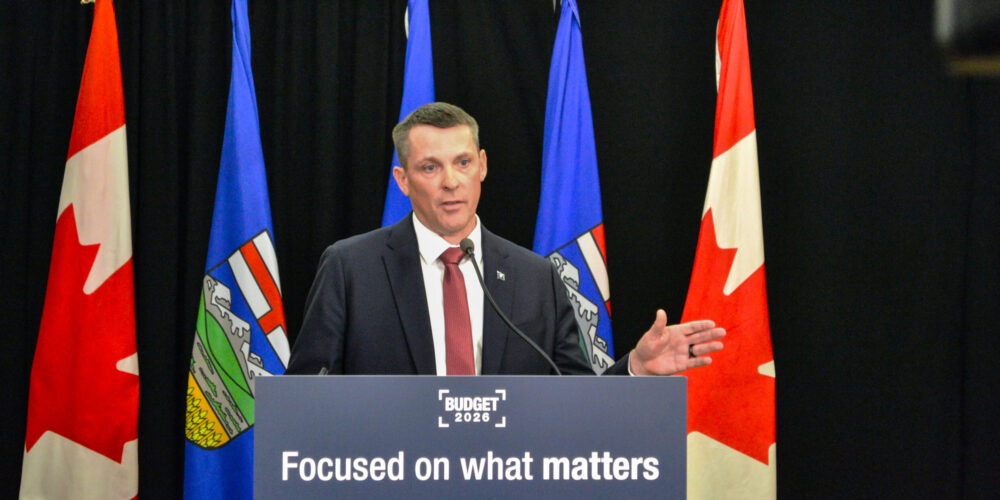GFC to recommend BoG approval of University Strategic Plan
GFC also approved the revised Undergraduate Embedded Certificate Framework, and discussed the revised draft of the Strategic Plan for Research and Innovation.
 Helen Zhang
Helen ZhangAt the University of Alberta’s General Faculties Council (GFC) meeting on May 29, the motion to recommend that the Board of Governors (BoG) approve the University Strategic Plan (USP) passed.
GFC also approved the revised Undergraduate Embedded Certificate Framework. Additionally, the revised draft of the Strategic Plan for Research and Innovation (SPRI) was presented.
The USP is about the U of A’s “overall aspirations for the next decade”
GFC passed a motion to recommend that BoG approve the proposed USP. The draft USP was presented to BoG, GFC, and Students’ Council. Dr. Verna Yiu, provost and vice-president (academic), added that the team “consulted extensively” on the draft.
Internal and external bodies strongly supported the plan’s three major pillars, “Education with Purpose,” “Research with Purpose,” and “Engagement with Purpose,” during consultation, Dr. Yiu said.
“Education with Purpose” addresses how U of A programs and teachings will evolve, and it explores opportunities for enrolment growth. “Research with Purpose” outlines strengthening areas of research, with an emphasis on Indigenization and Equity, Diversity, and Inclusion (EDI). “Engagement with Purpose” focuses on key priorities that Albertan communities and key stakeholders have identified through consultation.
“Most felt that we struck a very good balance between saving priorities and focus areas while still reflecting the breadth and diversity of a comprehensive university,” Dr. Yiu said.
She said that during consultations, the steering committee received feedback that the draft needed to “do more to articulate the integral role of the humanities, fine arts, and creative endeavours during university.” The steering committee took that feedback seriously when revising the draft, according to Dr. Yiu.
The plan focuses on the importance of people, Dr. Yiu added. “That means that we are an institution where our faculty, staff, and students can thrive, develop, and feel valued.”
To reflect this, the plan has seven key commitments embedded: Indigenization and decolonization; the U of A’s Indigenous Strategic Plan “Braiding Past, Present, and Future;” EDI; safety; sustainability; creativity; and collaboration.
The U of A community can expect more developed detailed methods of implementation in the 2023-24 academic year.
Revised Undergraduate Embedded Certificate Framework approved, will “reduce the somewhat chaotic disorder”
GFC approved the final version of the revised Undergraduate Embedded Certificate Framework. It immediately took effect in compliance with the existing embedded certificates expected by fall 2025. Existing embedded certificates that do not adhere to the framework will face assessment on a case-by-case basis. Consequently, all embedded certificates will be in alignment by fall 2025.
Kathryn Todd, provost and vice-president (academic-administration), said that the framework has gone through consultation and revision for 16 months. She said it “has received strong support from faculty and students alike.”
Students can meet embedded certificate requirements during the completion of a regular degree program. They come at no additional cost, and provide an area of focus for students. Todd emphasized that the revised framework will not affect current embedded certificates and programs.
“No existing program will be left in limbo or terminated. We value the current programs. Rather, the programs’ teams will work with each existing embedded certificate program to find the path that benefits the program and the students that desire that particular program,” Todd said.
“Our goal is not to mess with what’s working. But, to develop a framework so that going forward, we reduce the somewhat chaotic disorder that currently exists across the university.”
The revised framework will make certificates more accessible to more students and incorporate important university initiatives. Additionally, it will make sure programs can sustain the availability of courses and associated administration required, Todd added.
According to the framework, embedded certificates require 12-18 credits, including an experiential component or capstone project. There is no limit on the number of embedded certificates permitted. However, students must follow overlap guidelines for course selection. Additionally, transcripts will now include embedded certificates.
Revised Strategic Plan for Research and Innovation draft presented
Aminah Robinson, vice-president (research and innovation), presented the revised draft of the institutional Strategic Plan for Research and Innovation (SPRI) for feedback. The SPRI is the first comprehensive plan for research and innovation at the university and is still going through consultation.
The plan focuses on research and innovation priorities. Additionally, it includes goals that aim to support researchers, strengthen research, broaden research impact, and enhance the university’s reputation as a global leader in research and innovation.
“We know that the research landscape has changed dramatically and is much more competitive. But, we also feel that with the university restructuring, particularly with the U of A For Tomorrow … we have a tremendous opportunity to make an impact in terms of multidisciplinary research,” Robinson said.
The strategy aims to increase revenue and rankings. Additionally, it aims to help the university make a bigger impact from delivering high-quality research to various stakeholders, Robinson added.
“We also hope that this will bring much needed focus and resources to our researchers and innovators to be successful and work more collaboratively. And really focus on innovation, commercialization, knowledge translation, and mobilizing creative and artistic work.”




